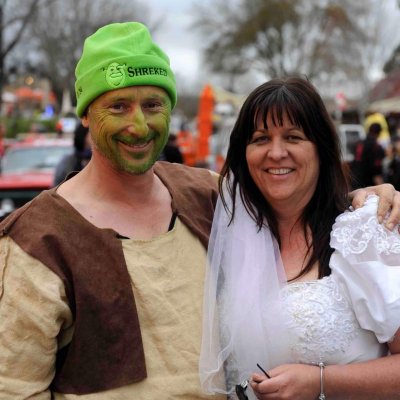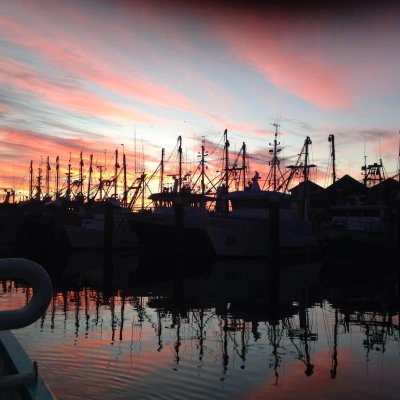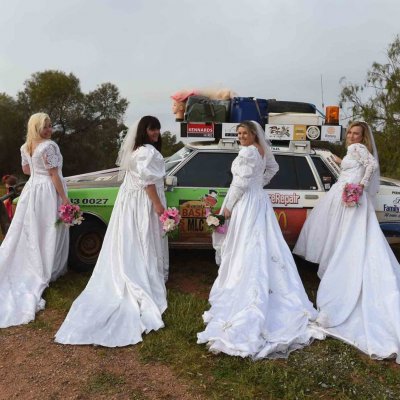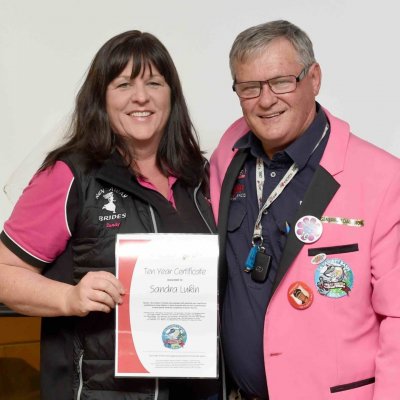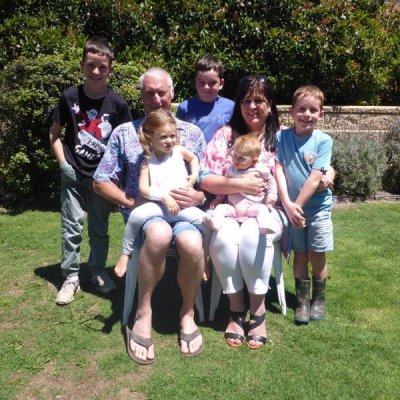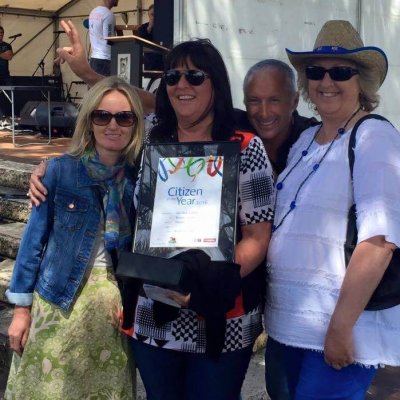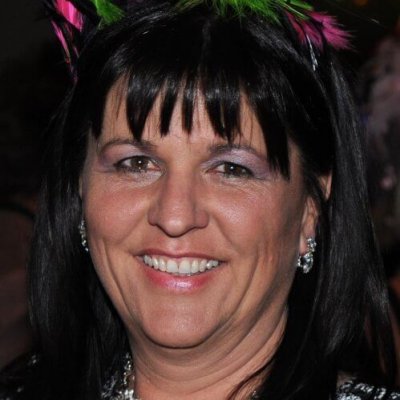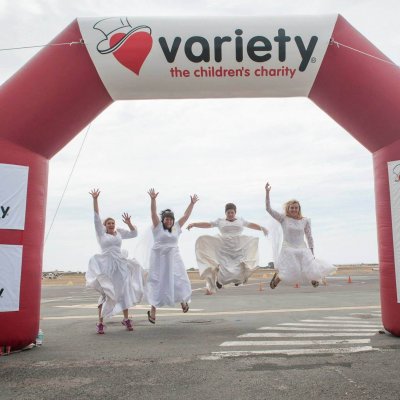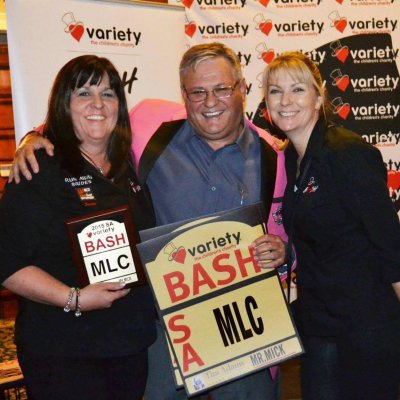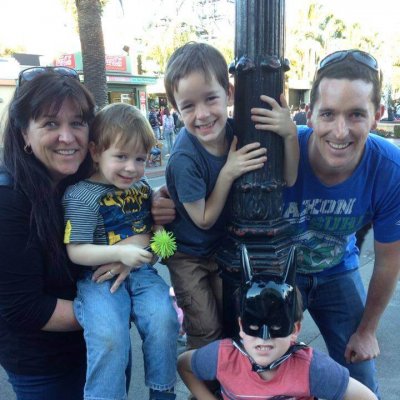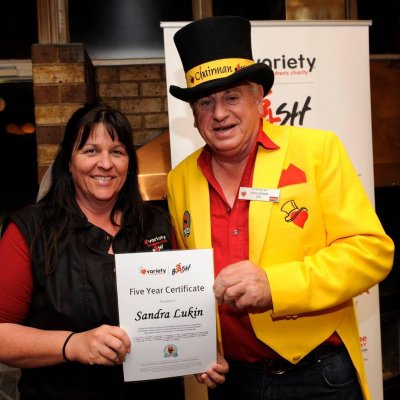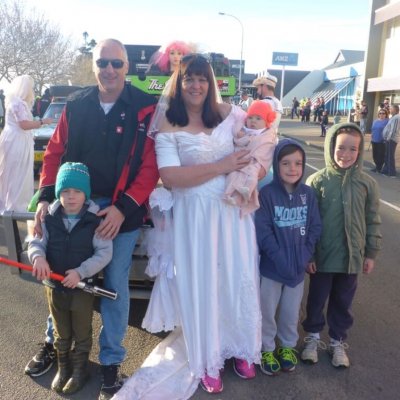Based in Port Lincoln on South Australia’s Eyre Peninsula, Sandra Lukin works tirelessly behind the scenes to support her family’s prawn fishing business. Though Sandra grew up on a 12,000-acre farm near Cowell, she’s since made Port Lincoln her home and is a long-standing advocate for her local community. Not only has Sandra been involved in many community organisations, she was the first female Chair of Variety Bash SA – an annual event that raises essential funds for children in need. Her dedication to improving the lives of children of the Eyre Peninsula saw Sandra awarded the Port Lincoln Australia Day Citizen of the Year in 2016. Sandra feels that one of the best things about being a rural woman is the vast support network and that “rural women understand each other”.
When asked what concerned Sandra about the health and safety of those in the fishing industry and community, Sandra highlighted the fatigue experienced by those returning from long, labour-intensive stints at sea, and a reluctance to change ‘the way things have always been done’. In order to reduce the likelihood of something going wrong as a consequence of fatigue, Sandra recommends escorting tired fishers home rather than allowing them to drive. She also believes that by doing your part to make things easier at home, you afford them the opportunity to get adequate rest before returning to sea.
Sandra also highlighted that whilst women in fishing don’t always have an immediate say in what happens at sea, they play a vital role in influencing the decisions made by their partners whilst on shore – and that sometimes not being on the boat provides a unique opportunity to offer a fresh perspective. Sandra feels that one of the key strengths of women in fishing is that they encourage their partners to consider new ideas and to accept and enact change where needed.
How would you describe yourself in three words?
Friendly, passionate and productive.
Tell me something interesting about yourself...
I grew up on a farm of 12,000 acres near Cowell, South Australia and promised myself I would never marry a farmer because everything depends on the weather… however I ended up married to a fisherman! I moved to Port Lincoln in 1982 and made it my home, and I can’t imagine living anywhere else. I must be local here now as I was awarded Port Lincoln Australia Day Citizen of the Year in 2016.
I am passionate about supporting children who need help to live the best life possible. I raise money for Variety, the Children’s Charity in SA, and have been going on the Variety Bash for the past 13 years. The last two years I’ve been the Chair of the event – the first female to ever hold that position.
When our two children were at school, I was involved with eight different committees, and for seven of them I held the position of Chair, Secretary or Treasurer. All the while my husband was busy fishing and we were building our business. Crazy, but also good to be involved with our community.
What's one achievement you are most proud of?
Right now, being married for 35 years.
In recent years it would be being asked to be the Chair of the biggest fundraising event in SA. Me! A housewife from Port Lincoln. However, the Board’s confidence in me gave me the confidence to take on the role. It was something I would never have put my hand up for, but I gave it my absolute best. I thoroughly enjoyed those two years and would do it again if asked.
In the past, it would be being confident in running the household and business when Tony would go to sea, even with small children. He always said he could concentrate on his job because he knew how capable I was back at home. He would be gone for three weeks at a time with no mobile phone… and back then he had to wait in line for the public phone box upon reaching shore. When I was 21 years old, Tony went fishing the day after I got out of hospital with our newborn baby and I didn’t hear from him for three weeks. Nowadays it’s different – but it’s still hard on young mums.
What makes you truly happy?
When my husband, children and grandchildren are happy, and when I get sponsors to say yes to supporting my cause.
What do you love the most about being a rural woman?
Having a great support network all over the Eyre Peninsula. Rural women understand each other. For example, a rural woman will drive for hours to help someone in need or just to visit and have a coffee with a friend, then drive home again.
Women are the backbone of the fishing industry. To be a fisherman means being away a lot, and it is in their blood, so it is important to support that life for them. Happy spouse, happy house.
Tell me about a time when you felt worried about your own or someone else’s health, safety or wellbeing on the farm, boat or in some other aspect of rural life.
When we were first married, I used to worry about Tony being at sea when it was really windy. One time, early in our marriage, I lay awake listening to the wind and imagining all the different sorts of terrible scenarios he must have been having on deck, only to find out that it wasn’t even windy where he was. I decided to not worry about anything to do with the weather or what’s happening on the boat as I can’t control either.
Years ago when our children were young, we worked two fisheries – prawns then pilchards in between. When Tony was pilchard fishing, he would get very fatigued… he was either fishing, eating or sleeping. I used to have to stay home to wake him as sometimes he wouldn’t sleep for up to 24 hours.
What practical things did or could you, your partner and / or others do to prevent someone from getting hurt?
I believe my husband is very safety conscious on the boat and would never put anyone’s life at risk, or his own for that matter. That said, as a way of helping Tony manage his fatigue, I would pick him up from the boat so he didn’t have to drive while tired… even from the marina to home, which only takes 12 minutes. I also made sure his food was prepared so he could concentrate on resting before he made the call to go back to sea.
“If you’re not getting traction, get the point across by asking the ‘what-if’s’. How would you feel if...? How would you cope if...? Is it that hard? At the end of the day, it’s all about the safety of our family, our workers and our visitors.”
Sandra Lukin, Port Lincoln, South Australia AU Tweet this
Is there a time, place or scenario when your partner / workers are more willing to make changes to the way work is done?
I do pride myself on being able to get Tony to consider the other side of a story or a different way something could be done. We tend to discuss things as they arise, and as we do a lot of driving, a lot of our conversations might be in the car. He can be very ‘old school’ and often thinks the way something has always been done is the only way it can/should be done. I help him soften his thoughts, even if in the end he still does it his way. And when I do get him to see the other side, he often says, “I hate it when you’re right”.
Any change is usually met with a protest and his immediate reaction is to handball it, but I can ask good questions, which helps him see it from a different perspective. I am not always trying to change his mind but I can be a sounding board. For example, last year we had to work on the risk register for the prawn boat. Well that was nearly divorce material, hahaha. He had been fishing for 35 years without one, so why start now? But I managed to enable the conversation and work through it (with Alex’s help). While it activated the conversation for change – and while the exercise itself was seemingly trivial to Tony – it would have raised his awareness on the various things that can go wrong at sea, what’s done to manage them etc.
If you could give any advice to another rural woman about work health and safety in rural industries, about influencing change in business - or just in general - what would it be?
Although I don’t actually go to sea to understand what goes on out there, I do think we’re able to try to convince our men to listen to new ideas and accept change, where needed. My main advice is to maintain really good communication and support each other. If you’re not getting traction on making a suggestion, get the point across by showing the ‘what-if’s’. How would you feel if…? How would you cope if…? Is it that hard? At the end of the day, it is all about safety for our family, our workers and our visitors.
